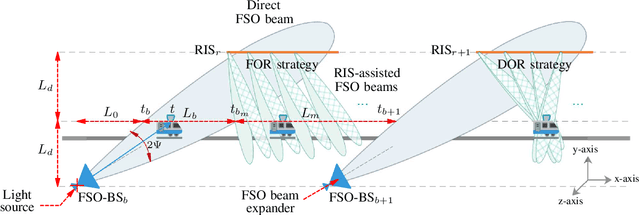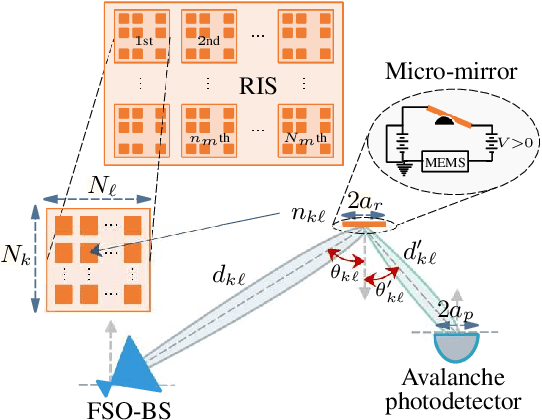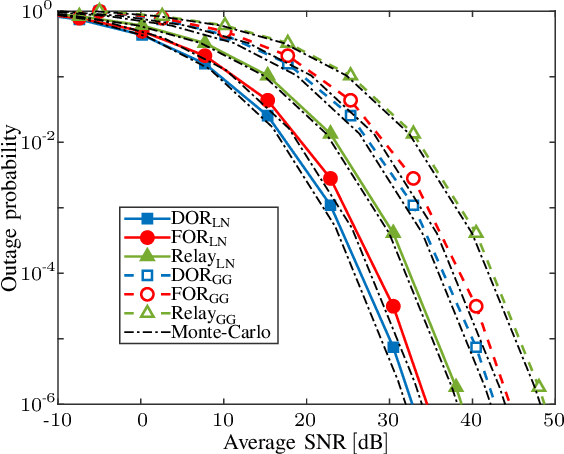High-Speed Trains Access Connectivity Through RIS-Assisted FSO Communications
Paper and Code
Oct 25, 2021



Free-space optic (FSO) is a promising solution to provide broadband Internet access for high-speed trains (HSTs). Besides, reconfigurable intelligent surfaces (RIS) are considered as hardware technology to improve performance of optical wireless communication systems. In this paper, we propose a RIS-assisted FSO system to provide access connectivity for HTSs, as an upgrade for the existing direct and relay-assisted FSO access setups. Our motivation is mainly based on well-proven results indicating that a RIS-assisted optical wireless system, with a large enough number of RIS elements, outperforms a relay-assisted one thanks to its programmable structure. We firstly compute the statistical expressions of the considered RIS-assisted FSO channels under weak and moderate-to-strong fading conditions. Then, the network's average signal-to-noise ratio and outage probability are formulated based on the assumed fading conditions, and for two fixed- and dynamic-oriented RIS coverage scenarios. Our results reveal that the proposed access network offers up to around 44% higher data rates and 240% wider coverage area for each FSO base station (FSO-BS) compared to those of the relay-assisted one. The increase of coverage area, on average, reduces 67% the number of required FSO-BSs for a given distance, which results in fewer handover processes compared to the alternative setups. Finally, the results are verified through Monte-Carlo simulations.
 Add to Chrome
Add to Chrome Add to Firefox
Add to Firefox Add to Edge
Add to Edge